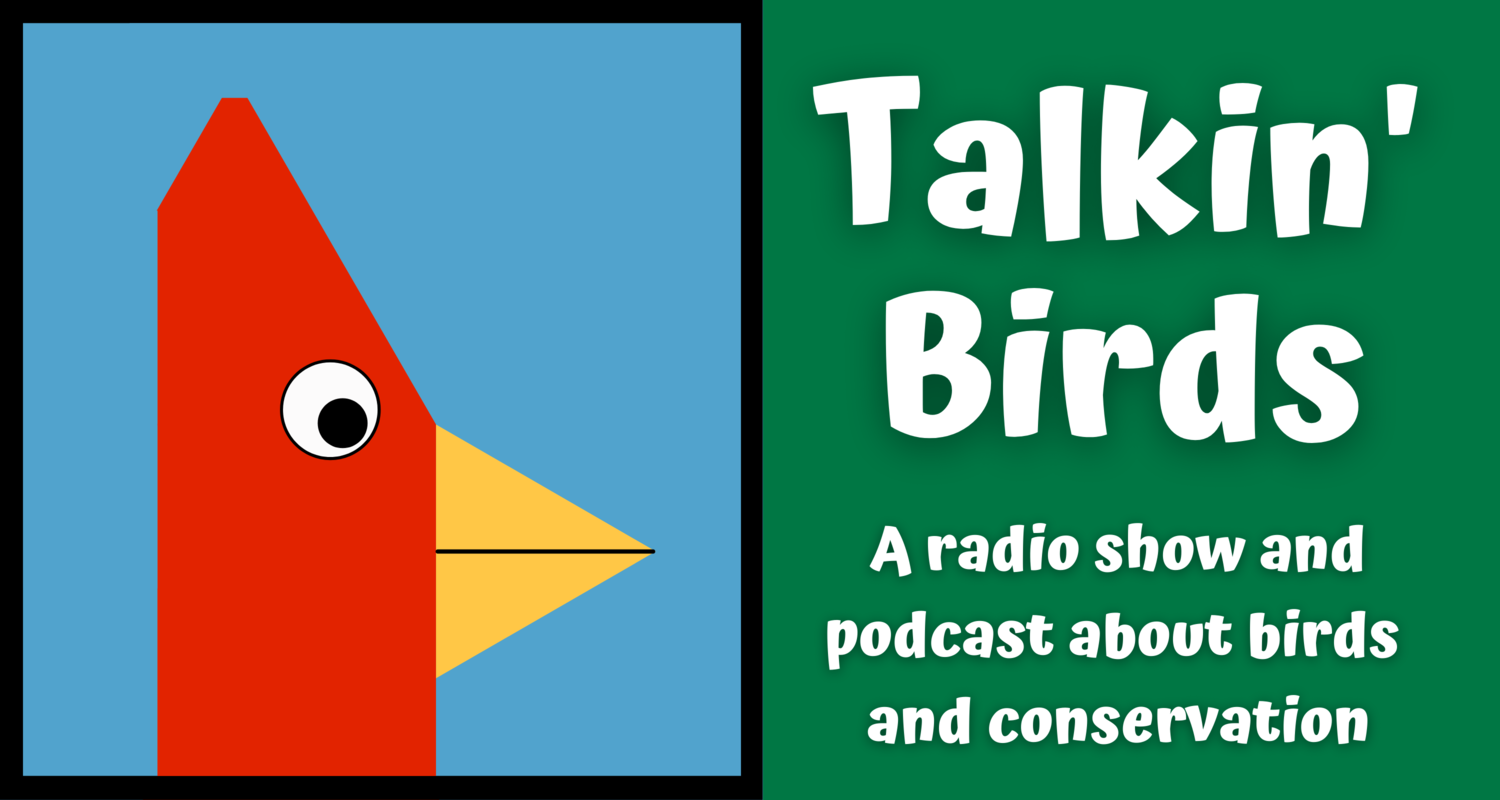How To Be an Inclusive Birder
Birding is for everybody, but not everybody can easily go birding. Here are resources that individual birders, bird outing leaders, bird clubs, and nature centers can implement to help make birding more welcoming and inclusive.
Learning how to welcome everyone is an ongoing process, so we’d love your feedback. Please email our Outreach Coordinator Freya McGregor at freya@talkinbirds.com
for birders who need equipment
Birding backpacks are free to borrow from the Free Library of Philadelphia. They include binoculars, a field guide, and a map of local birding places. They were created to help making birding more accessible to people who don’t have this equipment; read more here. Perhaps you know of a local organization that runs a similar program—or one that might benefit from this idea.
for birders with a disability
The Birdability website has a wealth of information in the Guidance Documents including access considerations for holding accessible bird outings and language tips for inclusivity
The Birdability Map contains information about accessibility features of birding locations around North America. It relies on people’s brief trail reviews, so contribute yours and watch it grow!
Our Outreach Coordinator Freya McGregor hosted a panel of birders with various disabilities and medical conditions talking about accessibility challenges while birding during Birdability Week 2020. Freya continues to share resources on her Instagram account @the.ot.birder.
Boulder OSMP loans out hand-cycles for free and runs sensory programs to help people with dementia experience nature. For more information, see this page.
Mass Audubon’s All Persons Trails meet or exceed ADA requirements and have Universal Design Principles applied to interpretive features. Their Accessibility website includes information on their physical, visual, and hearing-impaired accessibility, trails, programs and other projects; there’s also a video. Their Accessible Trails Project website is helpful for designing trails, and you can download their Accessible Trails Manual.
Created for outdoor camps, the Australian Camps Association Inclusion guide and self-assessment resource for camps and outdoor activity providers can help bird clubs and other nature organizations reflect on how inclusive they are. Birdability: Birding By Ear is a free online course run by Birds Canada/Oiseaux Canada created specifically for birders who have visual impairments.
Microsoft created some very short videos on basic disability awareness training.
for Birders who are Black, Latinx, Indigenous, or People of Color
Video: National Audubon Society’s Facebook Live Birding While Black: A candid conversation panels from #BlackBirdersWeek in June 2020: First session and second session,
Book: Birding for everyone: Encouraging People of Color to become birdwatchers, by John C. Robinson. Published in 2008 by Wings-on-Disk.
Video: American Birding Association’s Birding for Everyone: A discussion with John C. Robinson, Tykee James, and Nicole Jackson.
Movement: Bird Names for Birds, seeks to rename North American birds to describe the bird, not celebrate a (white) person.
Event: Latino Conservation Week in July celebrates Latinx who love nature. National Audubon has a whole suite of information and activities for kids online in Spanish. Check out Audubon Para Ninos for more.
Social media: @blackafinstem Flock Together is a birding group for People of Color that started in London and has expanded to Toronto. Get in touch with them via Instagram @flocktogether.world
Group: Outdoor Afro: “where Black people and nature meet!” They host hikes and outdoor events all over the United States.
for Birders who want to LEARN ABOUT RACISM IN THE BIRDING COMMUNITY
Three-minute illustrated interview with Christian Cooper about birding as a Black man. From PBS NOVA.
Comic by Christian Cooper, published by DC Comics, about a young Black man going bird watching, and how the history of police shootings affects his experience of birding. Download it here, for free.
Article published by the American Bird Conservancy by Dr. J. Drew Lanham, 2020: A Black Birder's Ramble Through The Thicket Of Opinion On Social Movement And Bird Conservation
Article published in Vanity Fair by Dr. J. Drew Lanham, 2020: Nine new revelations for the Black American bird watcher.
Interview with Dr. Lanham published in Vanity Fair: “How am I going to be perceived as a Black man with binoculars?”: J. Drew Lanham on Christian Cooper and the Rules for the Black Bird watcher.
Piece by Day Scott, Black birder and photographer in Wyoming. She shares how challenging it can to go birding by herself and why Black Birders Week is so significant, published in June 2020: On Race and Birding.
Washington Post article: People called police on this black birdwatcher so many times that he posted custom signs to explain his hobby.
for birders who identify as LGBTQIA+
The Feminist Bird Club has chapters in eight US cities, plus Canada and the Netherlands. They hold bird outings which intentionally create safe places for women, BIPOC, and LGBTQIA+ birders.
Let’s Go Birding Together outings are held across the country in June for Pride Month.
Audubon Vermont partners with the Pride Center of Vermont and holds Pride Hikes monthly.
LGBTQIA+ birders are invited to join the Facebook group LGBTQ+ Birders of North America.
For clear, replicable strategies and additional resources for creating a more inclusive and welcoming environment, read Outright Vermont workshop with Audubon Vermont: Working to be safe, supportive, and affirming to all students regardless of their gender identity and presentation, written by the creator of Pride Hikes.
